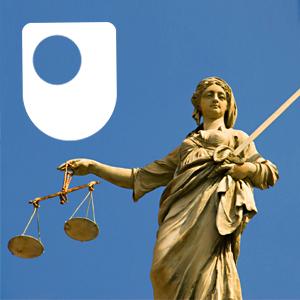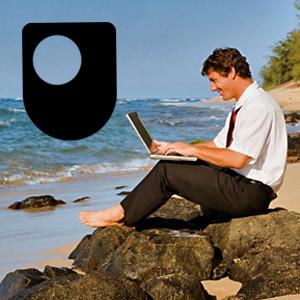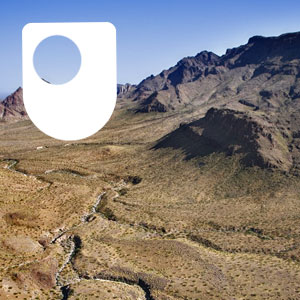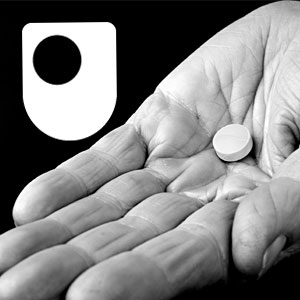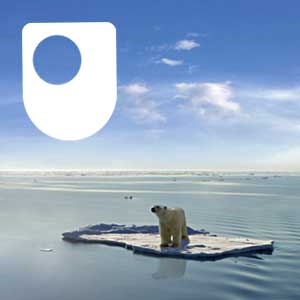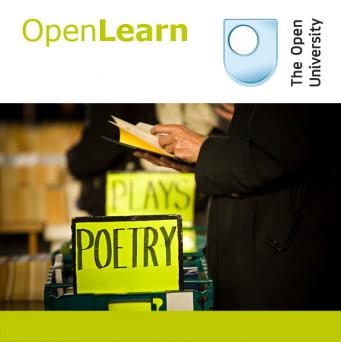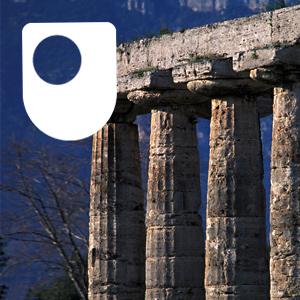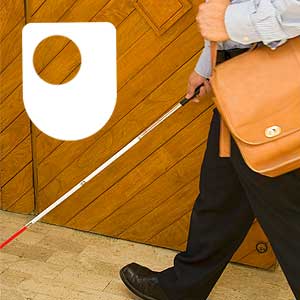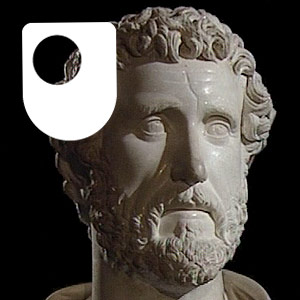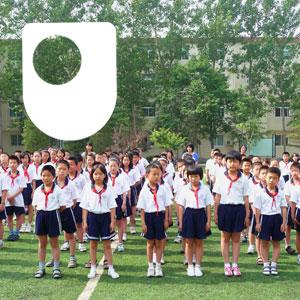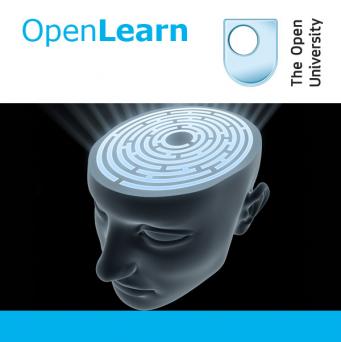The Open University
How can new technology help you to play a new musical instrument? The E-Sense research programme is experimenting with novel augmentation devices to explore sensory, bodily and cognitive extension. In this interdisciplinary research, philosophy and art combine with various flavours of computing:...
If you could save one thing for posterity, what would it be? Your answer is likely to depend on the things you value. But the things that society values are changing all the time. The tracks on this album explore four different heritage stories. In the feature on the Lake District, we hear how...
Major retailers today face a major challenge to manage and distribute goods from suppliers around the world. What systems enable big business to keep in touch with latest sales information from their stores? How are Internet and Web technologies and their associated applications used in practice?...
Teachers are the largest professionally trained group in the world numbering over 59 million. But what does being a professional mean for teachers? These dramas explore how two teachers acted in different situations (a school prize giving and in discussion with parents) and ask what are...
Animal life has adapted to survive in the most unlikely and inhospitable habitats. This unit looks at the surprisingly diverse desert climates throughout the world and mammals, birds, lizards and amphibians that survive there. It splits these animals into three groups according to their strategy...
What is Peak oil? Will we ever have vehicles that produce zero emissions? The debate rages on as to when fossil fuels will eventually run out, but many scientists are in little doubt that these natural resources are limited. In this audio collection we investigate some of the methods of energy...
Should lawyers be passionate? Or should the argument stand or fall on its merits – and not on the dramatic abilities of its advocate? Professor Gary Slapper, Director of the Centre for Law at The Open University is joined by Frances Gibb, Legal Editor of the Times, to discuss the role of...
What does the future hold for our working lives? This album explores the ways in which organisations are changing; the breaking down of traditional hierarchical structures, the increasing emphasis on self-management, customer-orientated teams, the use of technology to enable more remote working...
What are borders for? Who controls them, and why might people risk their lives to cross them? This album examines the border between Mexico and the United States as a symbolic place which both connects and divides people, highlighting complex issues about cultural belonging and national...
How much can we learn from an entombed skeleton? This album introduces Seianti Hanunia Tlesnasa, an Etruscan noblewoman whose remains, along with her magnificent painted sarcophagus and life-size model, provide us with an unequalled insight a Roman life around 150 BC. The Etruscans were the...
From surgical tools to obstetric instruments, personalised colostomy bags to hip implants, the UK's National Health Service requires an astonishing number of products to be manufactured, delivered and routinely managed. What happens behind the scenes to ensure the systems function smoothly? This...
Genetically, mountain gorillas are amongst our closest living relatives, and also one of the world's most endangered species. Half the world's remaining population survive in the forests of Uganda. This album explores the challenges facing conservationists at Bwindi Impenetrable National Park....
The underlying premise of this unit is that we are all experts in different ways, and that our different experiences and understandings are of value. Inclusive education is presented and discussed as under construction, both in educational settings and as a concept. The materials to be found in...
As the only planetary body everyone is familiar with seeing in the sky, the Moon has long been an object of fascination and speculation. This unit will teach you about the nearest planetary body to Earth: the missions to the Moon, the basic facts of its composition, the cratering on its surface,...
This is a one-week residential course which introduces a range of practical skills appropriate to the study of environmental science. You visit a variety of sites where you apply your knowledge of biology, chemistry, earth sciences and physics to study interactions and feedback in the...
What is systems thinking and practice? The essence of systems thinking and practice is in ‘seeing’ the world in a particular way, because how you ‘see’ things affects the way you approach situations or undertake specific tasks. This unit will help you to learn about the problems of defining a...
There's a lot more to Notting Hill Carnival than a great street party. This album gives you a true insider guide, by some of the people who have made the Carnival what it is today. Its story reaches back to the darkest recesses of European tradition, through Colonialism and slavery, to racist...
What defines individual freedom in a civilised society? Philosophers have argued over such questions for centuries. This unit looks at various concepts of freedom, asking you to think carefully about how freedom is restricted by our place in society and how it can vary from state to state. This...
The history of the sterilisation of women with learning disabilities is highly controversial and remains, to a large extent, a secret. Preventing intellectually disabled women from having children was actively canvassed across the Western world in the early 20th century as a solution to the...
Mental health service users often feel - and often are - disempowered from taking control of their own destiny. The video tracks on this album tell the story of people who have been confined to the psychiatric wing of a large Northern hospital. Scripted and acted by mental health service...
Visitors may gain an insight into the workings and material of the course. Visitors may experience for themselves how a few simple measurements can identify energy savings in their homes. Registered students can prepare on OpenLearn before the course website opens, in particular by starting their...
Complex questions of environmental responsibility are increasingly raised in times of change and uncertainty. The tracks on this album illustrate the need for nurturing a fresh sense of care for our environment as well as more appropriate forms of accountability. We demonstrate the necessity of...
This unit explains the function of the cytoskeleton and its role in controlling transport of vesicles between different subcellular compartments. This study unit is just one of many that can be found on LearningSpace, part of OpenLearn, a collection of open educational resources from The Open...
This album explores the science of waves. Five video tracks feature two pair trawling fishermen from the Cornish village of Looe. Their lives and livelihoods depend on gadgets like radio, GPS and radar. This album explores the physics behind this technology, gives a simple introduction to...
Do you want to get more out of your reading of poetry? This unit is designed to develop the analytical skills you need for a more in-depth study of literary texts. You will learn about rhythm, alliteration, rhyme, poetic inversion, voice and line lengths and endings. You will examine poems that...
In this unit we explore how proteins are the 'doers' of the cell. They are huge in number and variety and diverse in structure and function, serving both the structural building blocks and the functional machinery of the cell. Just about every process in every cell requires specific proteins. The...
This series of tracks describes the everyday working of the Science Museum in Paris. They look at the way the exhibits are created, displayed and stored as well as giving an insight into creating and maintaining interest in key areas. Material is taken from The Open University Course L310...
Access to safe, clean and sustainable energy supplies is one of the greatest challenges facing humanity during the twenty-first century. This unit will survey the world’s present energy systems and their sustainability problems, together with some of the possible solutions to those problems and...
You can quit the gym, join a new golf club and move to a new city, but joining the citizenship club is not a choice; we are governed by the powers that decide who we are and what nation we belong to. Without agreeing to or choosing it, the vast majority of people in the world have their...
This unit is essential reading if you want to look at, and think about, people's ideas, practices and products to try to understand what they mean. Developing your skill in analysis–interpretation–evaluation and communication is a good and worthwhile investment. Aimed at learners of arts and...
What can archaeological remains tell us about early cities and the people who lived in them? This album examines the important remains of one city, Poseidonia in Italy, founded towards the end of the 7th century BCE by colonists from the Greek city of Sybaris. Although only twenty-five per...
What does the world look like to a person with a visual impairment? How does restricted vision impact on everyday life? How can you offer assistance without taking control? The video tracks on this album simulate what the world looks like to people with a range of visual impairments, and show...
Open University cognitive psychologist Graham Pike describes how his interest in facial compositing has led to a collaboration resulting in a computer based tool, called Efit V. This tool might transform the process of identifying police suspects. It is being developed to allow law enforcement...
Video games are an everyday part of our children’s lives today. But many parents have concerns about the time their children spend gaming, and sometimes perceive games as addictive and unhealthy. Others see games as a creative medium, with positive educational benefits. Presented by science...
What does your health mean to you? What features in society affect it? The tracks on this album explore influences such as stress, housing and employment on everyday health, and examines debates about the relative importance of individual lifestyles and looks at wider public-health concerns and...
How are designs turned into products? What resources, materials and methods used and what set of activities that goes under the heading of ‘manufacturing’? This unit will introduce manufacturing as a system and will describe some of the many different ways of making products. We will illustrate...
Issues surrounding care and welfare affect people in many different ways - it may depend on individual circumstances or on the location and nature of the community. The tracks on this album look at welfare issues faced by different communities across the UK, focusing mainly on care of the...
This series of tracks concentrates on an ancient city, Thugga, and looks at the influence of the Roman Empire on the city and the existing culture. Material is taken from The Open University Course AA309 Culture, identity and power in the Roman empire.
It has been called a 'Big Bang Machine', but what is the Large Hadron Collider and what do scientists hope it will discover? Presented by Robert Llewellyn, the three video tracks in this album address the science of collisions, the purpose of particle acceleration and the construction of the LHC...
This unit is the first in the MSXR209 series of five units that introduce the idea of modelling with mathematics. This unit centres on a mathematical model of how pollution levels in the Great Lakes of North America vary over a period of time. It demonstrates that, by keeping the model as simple...
How was Terry Waite able to build rapport with an Islamic extremist group? After being held captive for nearly four years, the former hostage has spent his life reconciling for peace. He talks to Open University Professor John Wolffe about how his incarceration in Beirut profoundly influenced his...
The Human Genome Project, the cutting edge of 21st century science, involves a unique collaboration between biologists, geneticists and statisticians, using the latest information technology. Today we stand on the brink of a new era, and the work of one man prepared the way. But few people today...
Charles Darwin is one of most famous scientists of the nineteenth century, but what was he like as a child, a father and a husband? How did his emotional response to the world affect his scientific theories? And how widespread is his influence today? This album looks at Darwin's rich and complex...
What is the role of the European Court of Human Rights (ECHR) and the nature of its relationship with the UK Government? What impact does it have on UK law?
With British membership of the European Union at the heart of the political agenda, the role of its Court of Human Rights and its influence...
This unit explores conceptual tools for assisting our thinking and deliberation on what matters. The notion of ‘framing’ nature is introduced and three readings provide an understanding of systems thinking for explicitly framing issues of environmental responsibility. This study unit is just one...
Health, and the health of others, are concerns that impact us all. This album explores notions of health and happiness in relation to the lifestyles people lead and the services and support available to them. The range of information is eclectic and illuminating, offering a rare insight into...
This unit will examine the particular issues that arise in bringing a project to a close, and ways of evaluating a project on its completion. The key components of project closure will be identified and discussed and their importance in ensuring that the aims and objectives of a project have been...
How has the English language spread internationally - and is the worldwide influence of English a cause for celebration or concern? How is it changing in response to social, cultural, and technological developments? ‘Worlds of English’ investigates these notions by looking at the expansion of...
Sex scandals, divorce, alleged links to the mafia, showman, entrepreneur, and as some might describe him – the politically incorrect politician. The Italian Prime Minister Silvio Berlusconi has been sworn in four times since 1994, but is Berlusconi a glimpse of political leadership of the future?...
This unit examines the philosophical questions surrounding the mind. You will examine how beliefs have changed over the centuries and be able to contrast the views of Descartes with more modern ideas. This study unit is just one of many that can be found on LearningSpace, part of OpenLearn, a...






